Vocabulary Building Normal Phonics Worksheets for Ages 5-8
11 filtered results
-
From - To
Enhance your child’s language skills with our Vocabulary Building Normal Phonics Worksheets designed for ages 5-8. These engaging, interactive worksheets focus on phonics, the building blocks of reading. Your child will embark on a learning adventure, exploring letter sounds and blending them to form words, strengthening their vocabulary. Ideal for early grade learners, our worksheets support literacy development, instilling confidence in young readers. With fun activities and colorful illustrations, these phonics worksheets make learning enjoyable and effective. Perfect for both classroom and home use, give your child the foundation they need to succeed in reading and communication through play and practice.
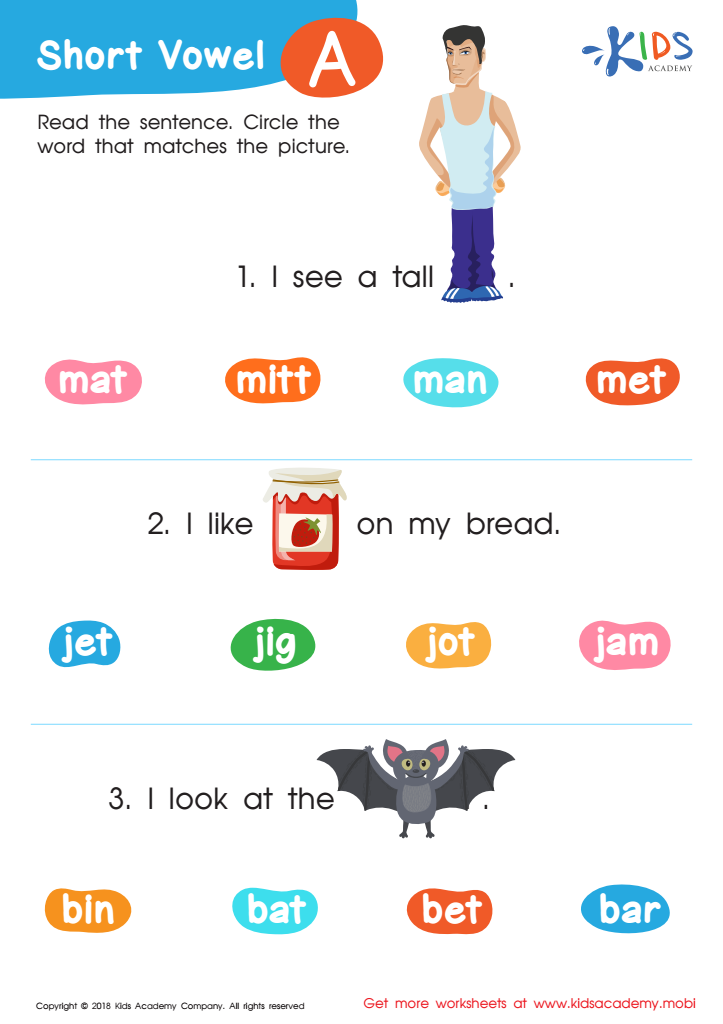

Short Vowel /a/ Worksheet
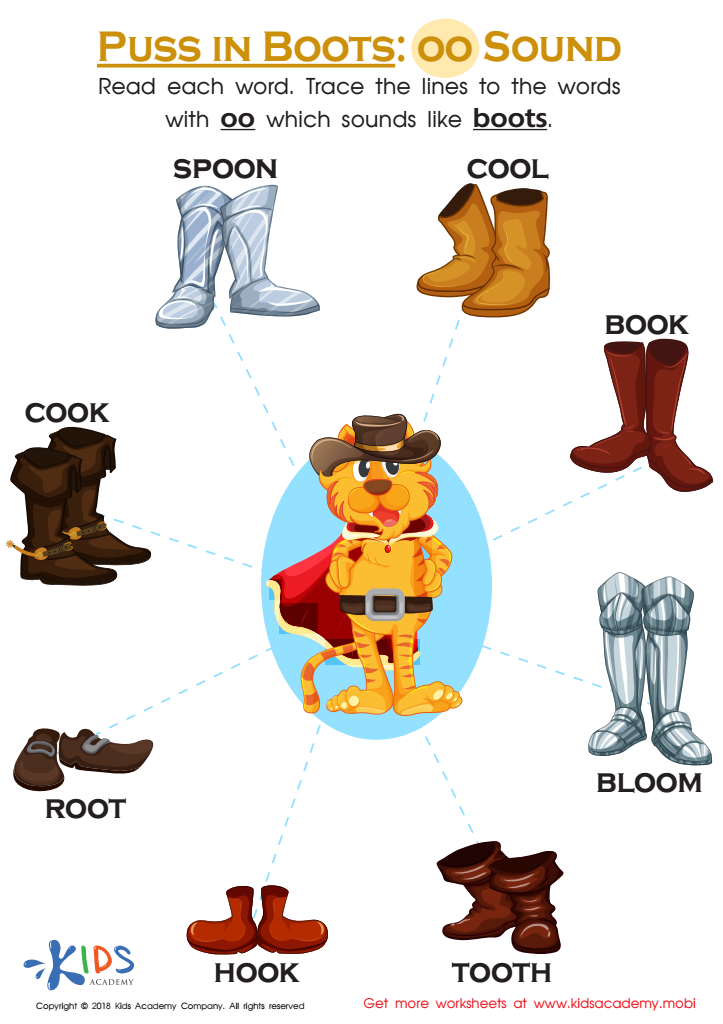

Puss in Boots: OO Sound Worksheet
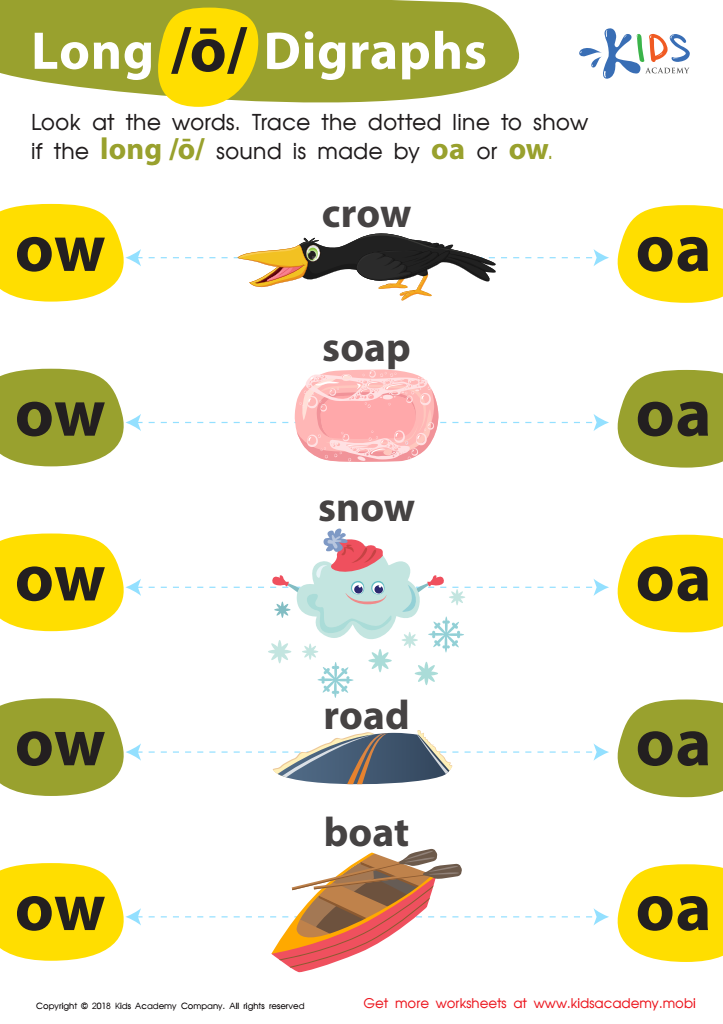

Reading: Long O Digraphs Worksheet
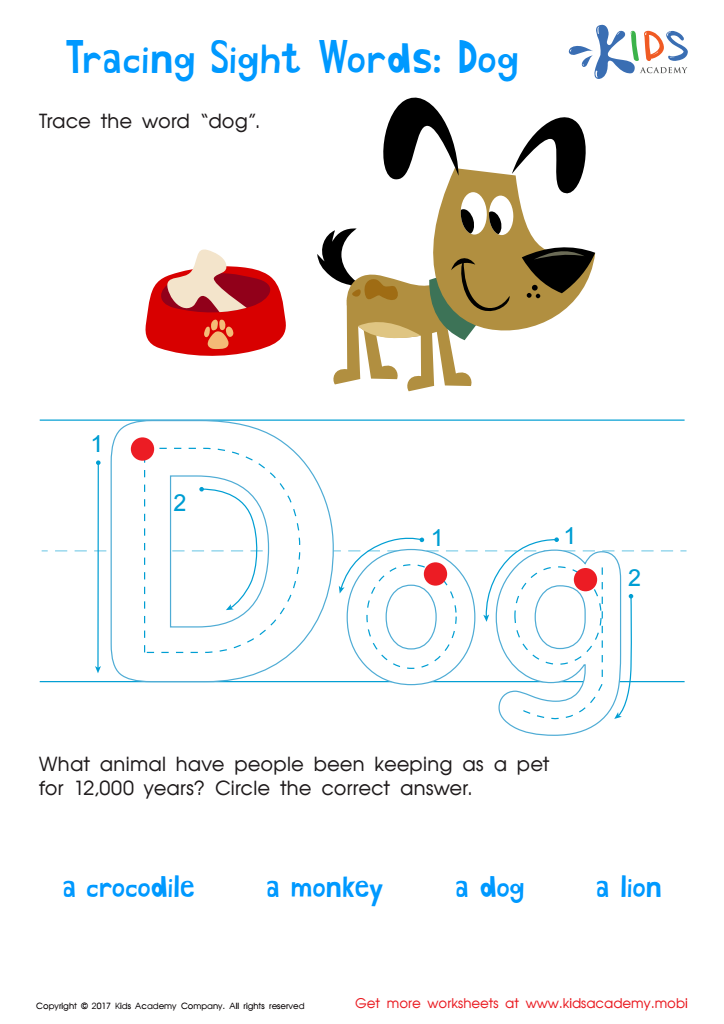

Dog Worksheet Sight Words Worksheet
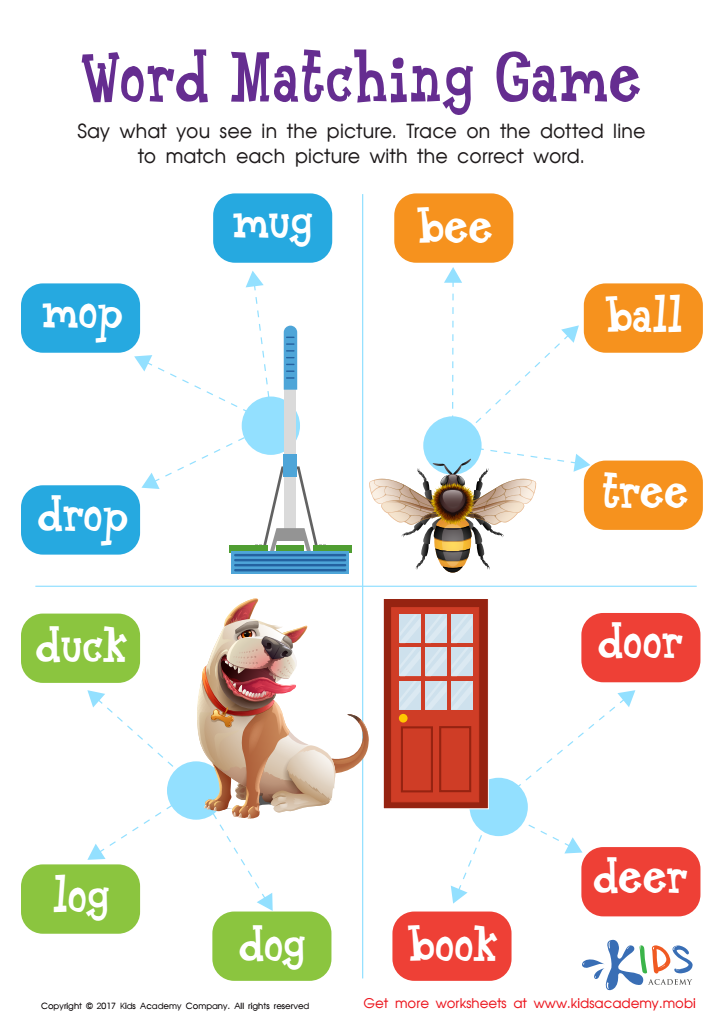

Word Matching Game Worksheet
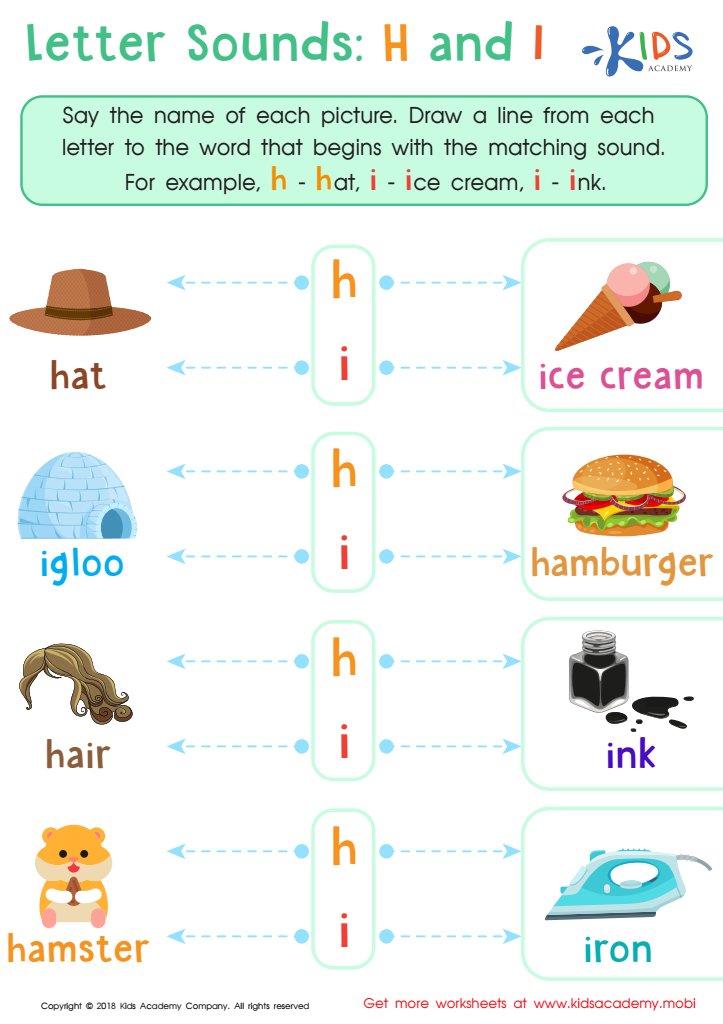

Letter H and I Sounds Worksheet
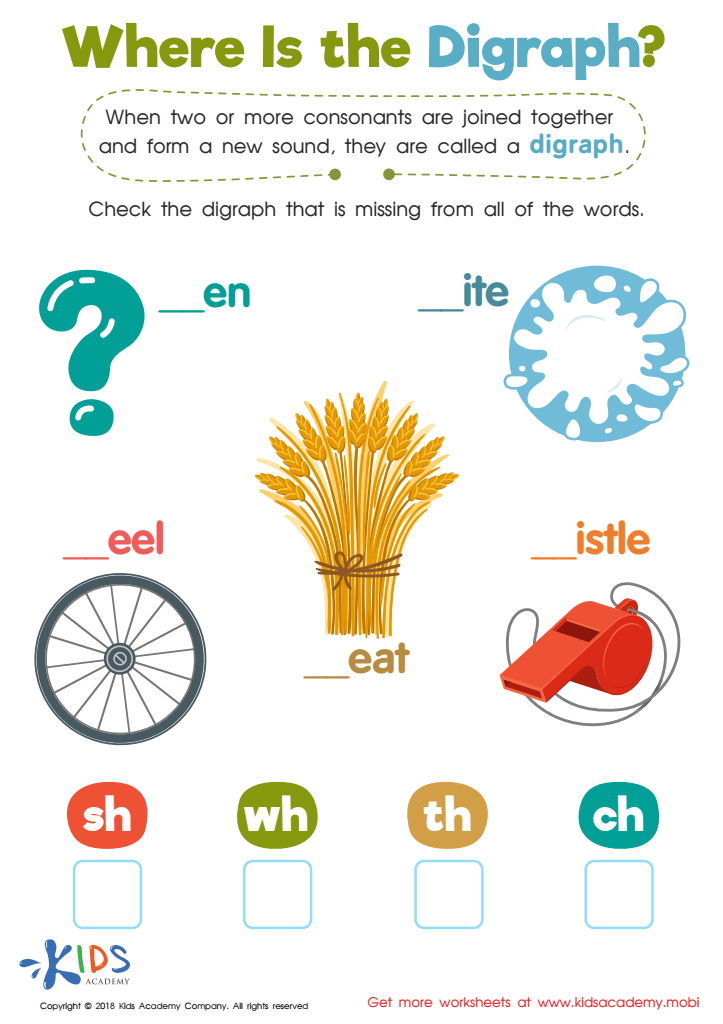

Where Is the Digraph? Worksheet
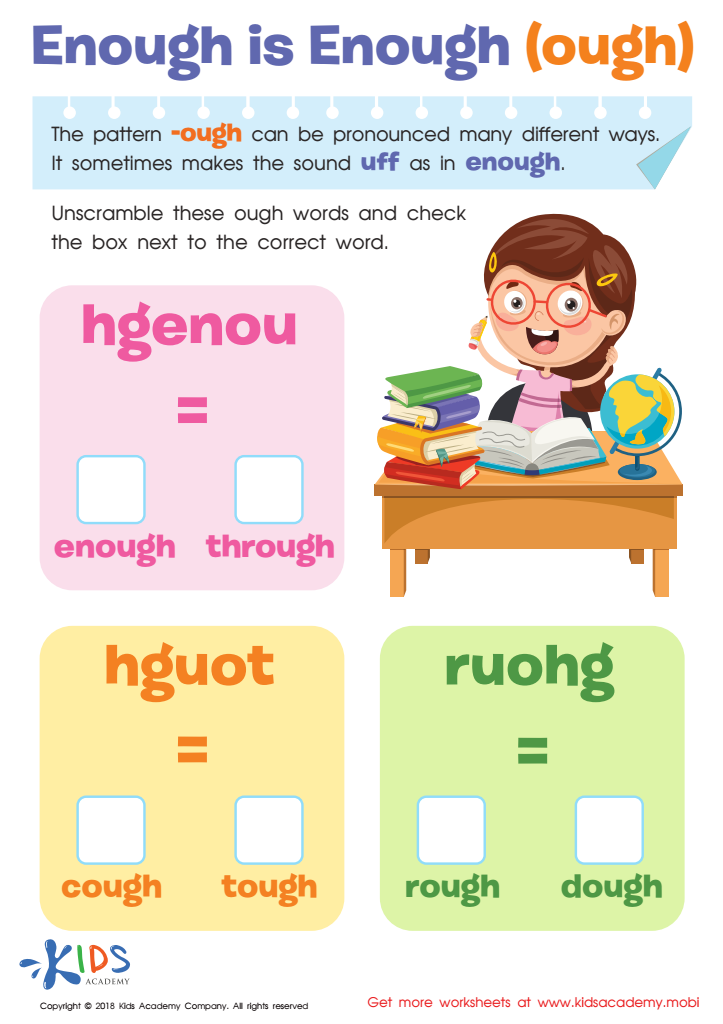

Enough Is Enough (ough) Worksheet
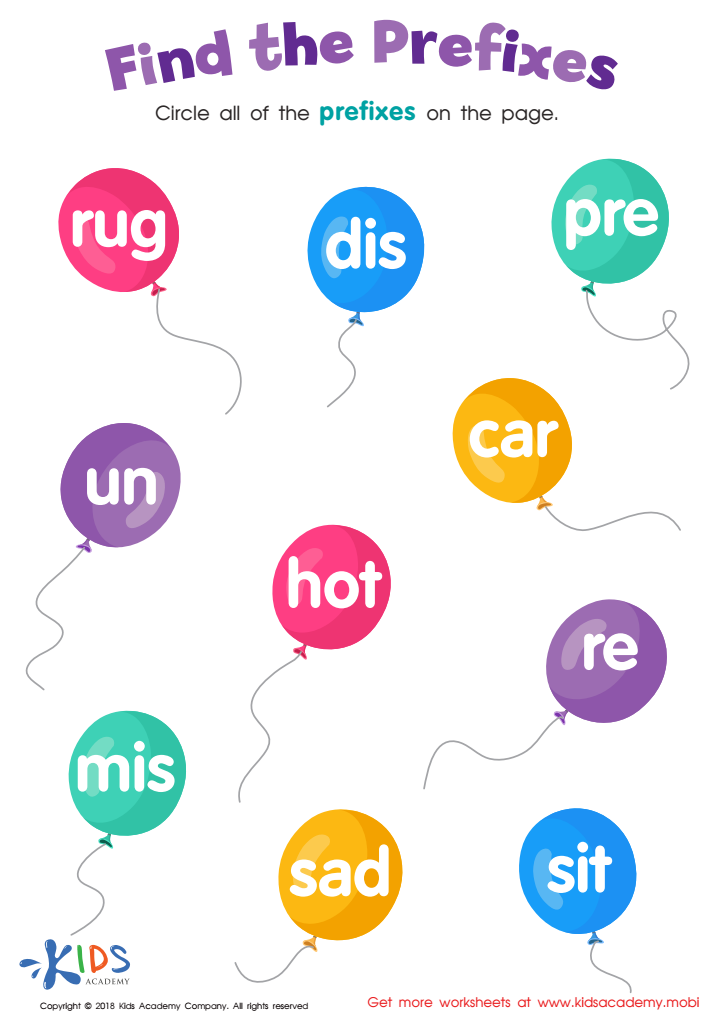

Reading: Find the Prefixes Worksheet
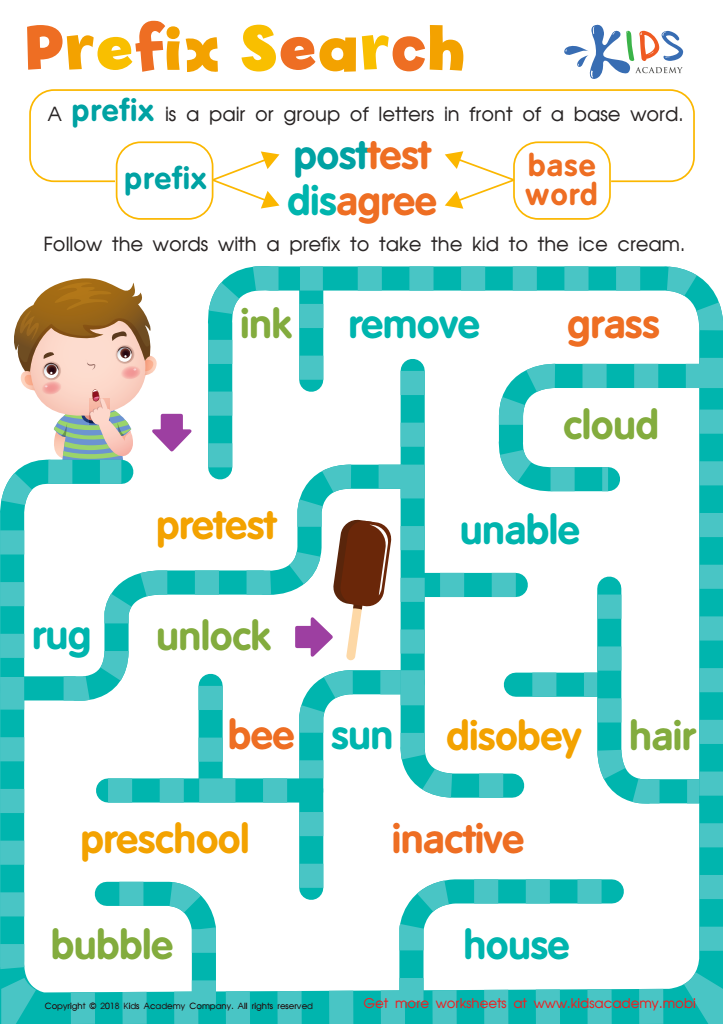

Reading: Prefix Search Worksheet


Words with sound p Reading Worksheet
Vocabulary building and phonics are critically important for children aged 5-8 because they lay the foundation for all future learning and literacy skills. During these formative years, children's brains are highly adaptable and capable of absorbing new information rapidly. Developing a robust vocabulary helps children to understand and express complex ideas, engage in more meaningful conversations, and build confidence in their communication skills.
Phonics, the relationship between letters and their sounds, is equally crucial. Phonics instruction helps children decode words, enabling them to read more fluently and with greater comprehension. This process not only aids in independent reading but also strengthens spelling and writing skills. When children understand the basic principles of phonics, they can tackle unfamiliar words with more ease and less frustration. This builds a positive association with reading, which is vital for cultivating a lifelong love of learning.
Furthermore, strong vocabulary and phonics skills are foundational for success in other subjects, such as math and science, where understanding terminology is essential. By investing time in vocabulary building and phonics, parents and teachers can ensure that children develop the necessary skills to excel academically and socially. Therefore, a focus on these areas supports well-rounded cognitive development and enhances overall educational outcomes.

 Assign to My Students
Assign to My Students




















